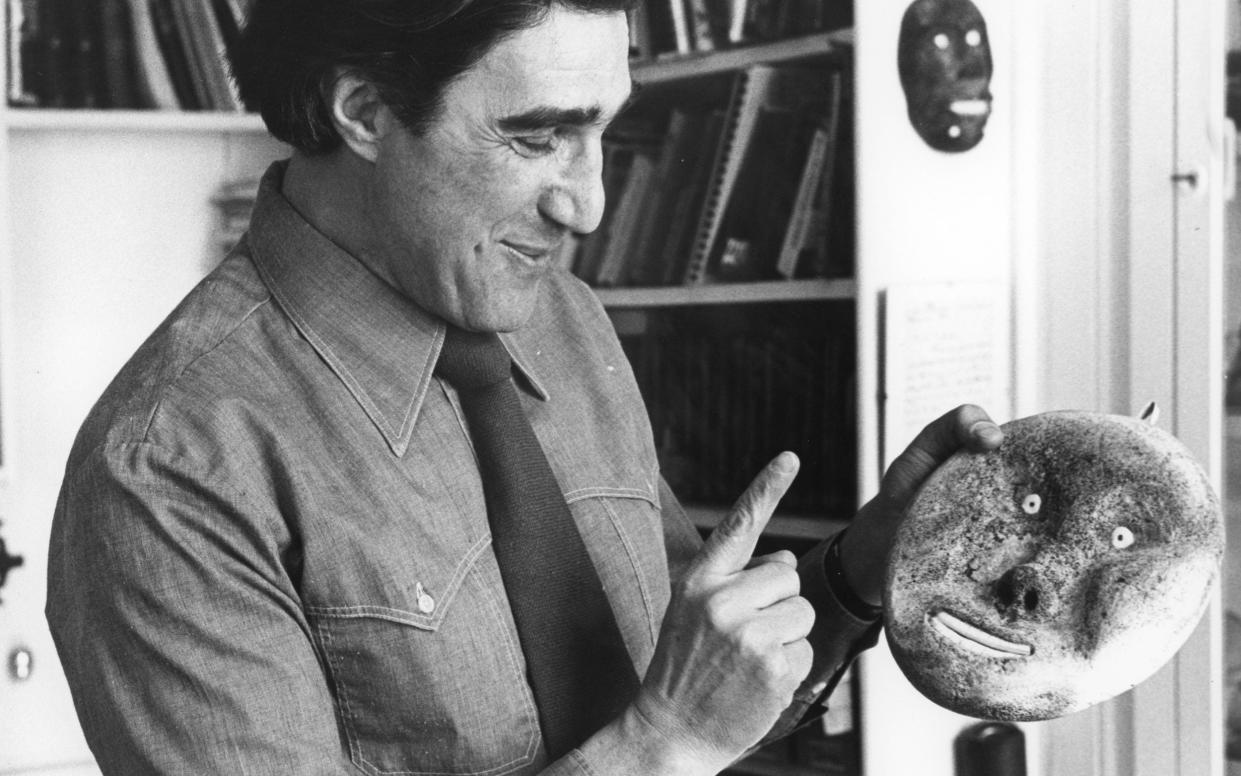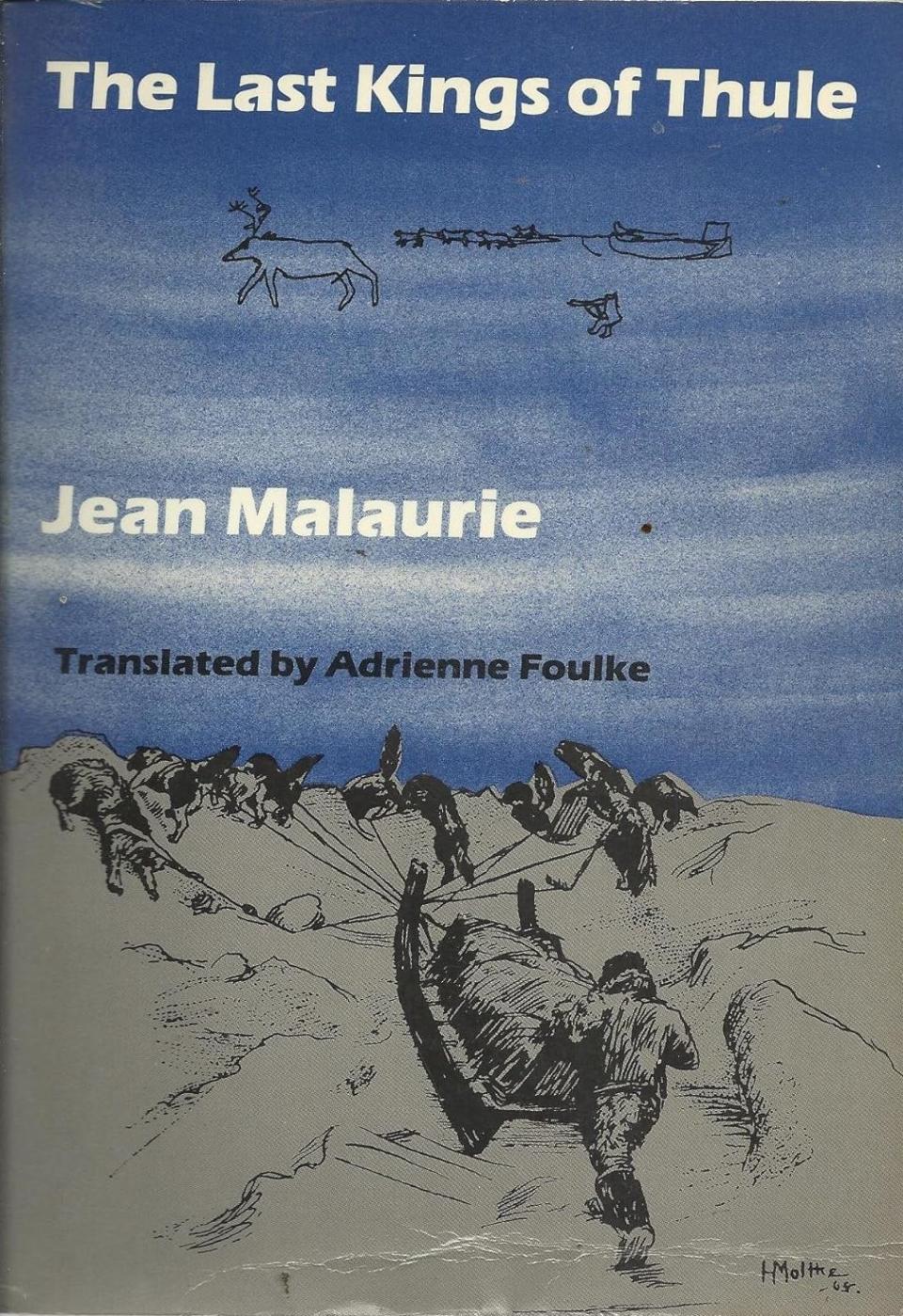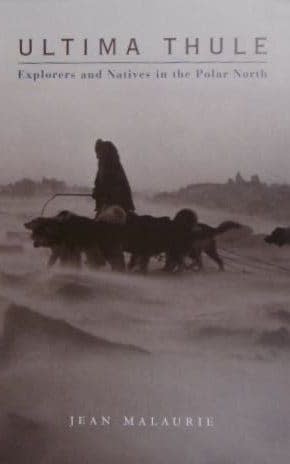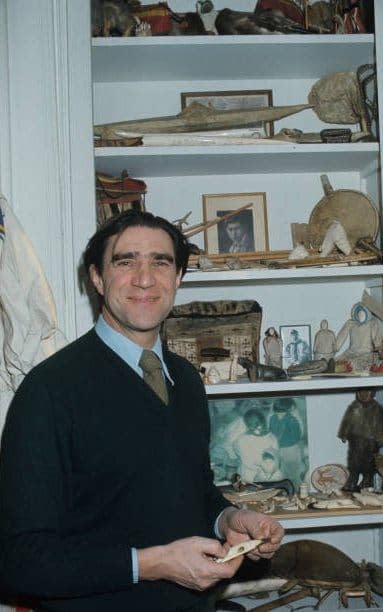Jean Malaurie, explorer who chronicled the disastrous effects of a US ‘invasion’ of Greenland – obituary

Jean Malaurie, who has died aged 101, was a French enthnologist and explorer who was regarded as being to the Arctic region what Wilfred Thesiger was to the Arabian sands.
In 1948, aged 26, Malaurie embarked on his first polar expedition, to the west coast of Greenland. Then in 1950-51 he spent a year with the Polar Inuit, learning their language and hunting techniques, living on raw fish and sharing their everyday experiences. On May 29 1951, travelling with an Inuk friend, he became the first European to reach the geomagnetic North Pole by dog sled.
The egalitarian society he found (he called it “anarcho-communist”) had changed very little since the first European explorers arrived in the 19th century. It was an animist culture of good and evil spirits regulated by shamans. Their way of life was hunting; their diet was meat, their tools bone and sealskin thong. Despite the arrival of several British and American expeditions, the Polar Inuit, though they fraternised with visitors, had continued their lifestyle, convinced of the superiority of their own culture and technology.
In 1910 a Greenland Dane and ethnologist called Knud Rasmussen had established a trading station at Cape York, Greenland, north of Baffin Bay, and called it Thule, tapping into the classical concept of a shining region at the top of the world referred to by Seneca as “Thule” (furthest north became “Ultima Thule”). Thule became a co-operative venture, its profits funding the exploration by the native people of their own history.

On June 16 1951 Malaurie was travelling back to Thule from the geomagnetic North Pole with his Inuk friend Kutikitsoq when, from the top of a glacier, they saw “a city of sheds and tents, of sheet metal and aluminium, dazzling in the sun in the smoke and dust”.
Under an agreement with Denmark – Greenland’s trustee – in the summer of 1951 the US military had landed in Thule. In three months of round-the-clock work the Americans built a top-secret $8 billion nuclear airbase which at its height employed 10,000 people and was equipped with missile-warning systems, satellite-tracking instruments, Nasa launch facilities for missiles, and B52 bombers.
At first the indigenous inhabitants were excited, enjoying the novelty of canned food and chewing gum, and seeing strange sights. Malaurie recalled that some expressed confidence that the Danish king would protect them. But two years later the inhabitants of Thule were summarily resettled 60 miles north to an old settlement called Qaanaaq, deprived of access to their ancestral burial grounds.
Shaken by what he saw, Malaurie wrote Les derniers rois de Thule (1955, translated into English as The Last Kings of Thule), an account of his experiences among the Inuit and a protest against the US “invasion”. It captured an ancient way of life just before its dissolution, was translated into 23 languages and has become a classic. Over the next half-century Malaurie dedicated his life to scientific and educational projects across the Arctic North on the Inuits’ behalf.
When he returned to his friends in northern Greenland in 1972 he found their society utterly transformed by their proximity to the US airbase. Hunting had been disrupted by the base and conditions at Qaanaaq had become problematic, with high rates of alcoholism and male suicide.
In Ultima Thule: Explorers and Natives in the Polar North, first published in French in 1990, Malaurie chronicled 170 years of Arctic exploration by European and American adventurers and their interaction with the peoples they found there. They were stories of courage, gallantry, sacrifice – and overbearing cultural arrogance.
His account included the appalling story of how in 1968, a B-52G bomber carrying nuclear warheads had crashed near Thule: “The B-52 disintegrated on impact, causing its 132,500 litres of fuel and the conventional explosives accompanying three of its four nuclear bombs to detonate.
“Thus three bombs, along with their payload of plutonium, uranium, americium and tritium, were blown apart across an area of 15 to 20 square kilometres. The fourth nuclear bomb vanished into the ocean depths. The fourth bomb posed a serious problem: it was supposed to have been recovered by American submarines in 1979, but there are still serious doubts about this claim, and it has never been officially proven.”

It was later revealed that a massive clean-up of contaminated material had been carried out by ill-equipped personnel, including local Inuit, without protective clothing. A high percentage of the workforce subsequently died of cancer.
In a coda to the book Malaurie considered how the Polar Inuit might regain their confidence and capacity to survive extreme conditions. His solution involved the recovery of hunting skills, combined with the development of polar technology to be exercised by educated Inuit through the air base (now the Pituffik Space Base), which, he acknowledged, was there to stay.
Jean Leonard Malaurie was born on December 22 1922 in Mainz, Germany, then occupied by France as part of the Rhineland. His father was a high school teacher and a veteran of the First World War. When the French occupation ended in 1930 the family returned to France. His father died in 1939.
His mother hoped Jean would be a diplomat and in 1943 he was preparing for the exams into a Grande Ecole in Paris when he was summoned to work as forced labour for the German war effort. Although his family was Pétainist he decided to go underground and joined the Resistance, becoming estranged from other family members.

After the war, he turned to science and took a degree in geology at the Institute of Geography of the University of Paris. He became a research associate at the Centre national de la recherche scientifique, and it was as a geomorphologist that he first travelled to the Arctic, carrying out mapping and mining exploration work.
In 1954, on his return to France following his year among the Inuit, he founded a specialist series with the Paris publishing house of Plon entitled “Terre humaine” to make works of ethnology and anthropology accessible to a wider public. The Last Kings of Thule was its first title, and he went on to edit and publish numerous works by other authors including Claude Lévi-Strauss’s Tristes Tropics, continuing to direct the imprint until 2016.
In 1957, on the recommendation of Lévi-Strauss and the historian Fernand Braudel, Malaurie was elected to a new chair of Polar Geography at the École des hautes études en sciences sociales. The following year he founded the Centre d’études arctiques and in 1960 the journal Inter-Nord.

He continued to carry out research in the field, leading more than 30 expeditions, including the first Franco-Soviet expedition to Siberian Chukotka in 1990. In 1992 he co-founded the State Polar Academy of Saint Petersburg of which he became honorary president for life
Malaurie wrote more than 1,200 articles and eight books, including a memoir. In 2007 he was appointed a Unesco goodwill ambassador, in charge of Arctic polar issues. His numerous honours include the French Grand Cross of the Légion d’honneur, the Patron’s Gold Medal of the Royal Geographical Society and the Mungo Park Medal of the Royal Scottish Geographic Society.
In an interview shortly before his 98th birthday, Malaurie expressed a wish that his ashes be scattered above Thule. “Maybe I will come back transformed into a butterfly,” he said.
In 1951 Malaurie married Monique Laporte, with whom he had a son and a daughter.
Jean Malaurie, born December 22 1922, died February 5 2024

